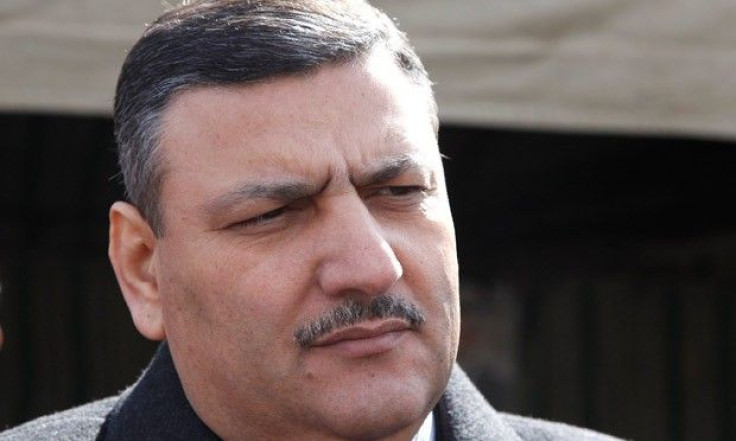Syrian President’s Inner Circle Just Got Smaller
Meanwhile, fighting intensifies in Aleppo

Calling the current leadership of Syria a "terrorist regime," Syrian Prime Minister Riyad Hijab has reportedly fled with his family to Jordan.
"I am from today a soldier in this blessed revolution," said Hijab in a written statement read on Al Jazeera by his spokeman Mohammed Otri.
State-controlled Syrian TV promptly announced Monday that Hijab had been sacked and that deputy premier Omar Ghalawanji was installed as interim PM. It also reported that Finance Minister Mohammed Jalilati had been arrested in Damascus after he expressed intention of bowing out of the government.
The recent development indicated serious cracks in President Bashar al Assad's inner circle following a number of military defections in recent weeks, most notably of former head of the Syrian Republican Guard Manaf Tlass.
Syrian columnist for The National Hassan Hassan said Hijab's two brothers, who both held ministerial positions, joined the former PM and several families in their exodus. A senior official of the Free Syria Army, or FSA, told the Associated Press that Hijab defected with three other ministers.
It is not clear exactly how many officials jumped Al Assad's ship in the past 24 hours, but Al Jazeera reported Monday morning that several Syrian intelligence officials had also fled to Jordan.
"I worry regime may panic and flatten Aleppo to make up for the defection. 20,000 regime troops reportedly surrounding it," said staff writer for Al-Ayyam online newspaper Shakeeb Al-Jabri on his Twitter feed.
Eearlier in the day a bomb blast hit a Syrian TV broadcast station, but the government said there were only slight injuries. Damascus was quickly falling back under control of the military.
Rebels in Aleppo, to the north of the country, were being out-gunned by government soldiers backed with fighter jets, tanks, gunships and, according to some reports, cluster bombs, which are controversial because unexploded bomblets can remain lethal for months and even years after a conflict abates. (The United States, Russia, Israel, China and other powers have refused to sign the Convention on Cluster Munitions to ban the use, transfer or stockpile of these weapons.)
Syria's pro-regime Al-Watan newspaper called the escalating battles in Aleppo a "decisive battle." Tanks were seen rolling into two rebel-controlled districts of Syria's largest city, according to the BBC, citing military sources.
The Syrian Observatory for Human Rights reported about 100 casualties on Sunday, including 65 civilians. At least thirty more fatalities were confirmed so far on Monday.
© Copyright IBTimes 2024. All rights reserved.












